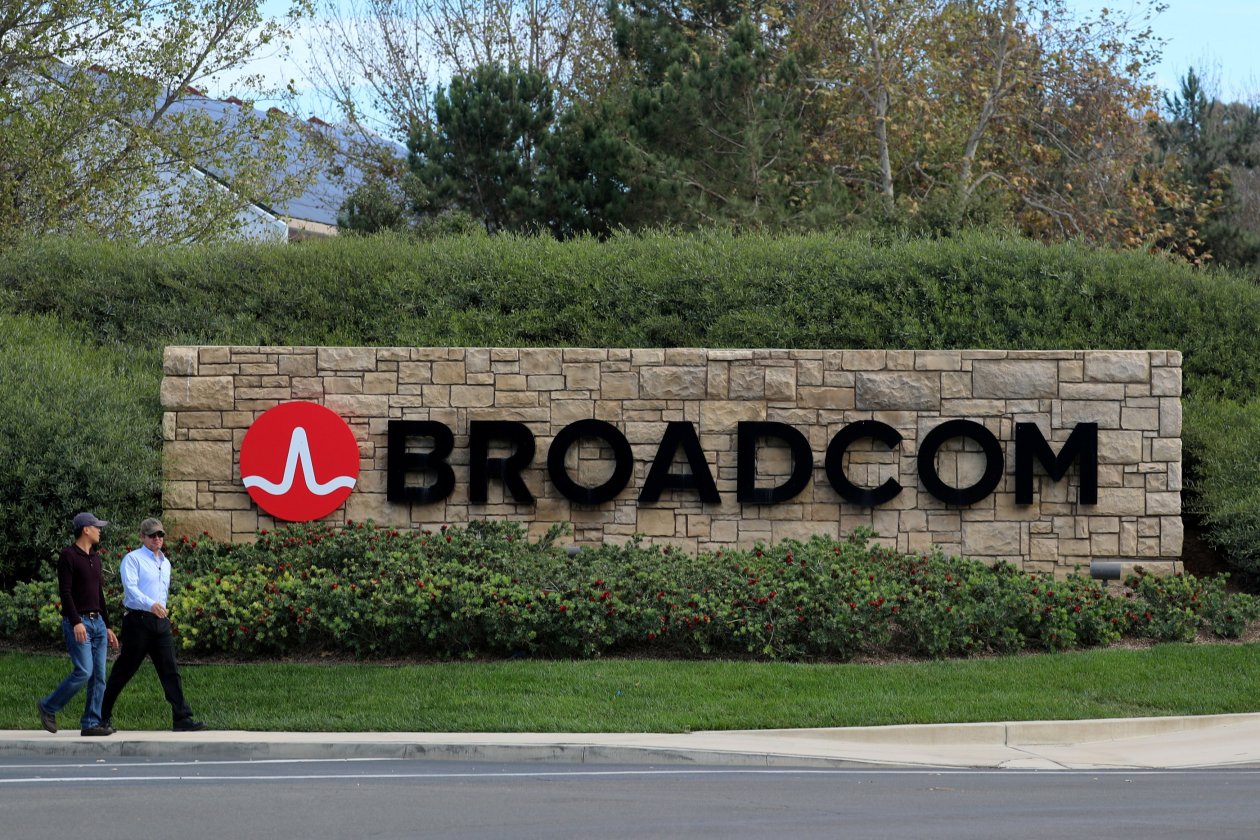
The U.S. government inserted itself into the technology industry’s biggest potential takeover, postponing a key shareholder vote on grounds that the deal could endanger the country’s technological prowess and, in turn, national security.
The Committee on Foreign Investment in the U.S., an interagency group chaired by the Treasury Department that can recommend the president block deals, ordered Qualcomm Inc. QCOM -1.13% to delay its annual shareholder meeting by 30 days to give CFIUS time to review Singapore-based rival Broadcom Ltd.’s AVGO -1.55% proposed $117 billion takeover of the chip maker.
Qualcomm has rejected Broadcom’s advances, consistently flagging a national-security review as a potential stumbling block to a deal. The company in January requested CFIUS review Broadcom’s bid.
Qualcomm shareholders were set to vote Tuesday on whether to replace six of the company’s 11 directors with nominees put forward by Broadcom, a result that could help Broadcom achieve the takeover.
Instead, in a surprise move late Sunday night, CFIUS told the companies it was kicking off an accelerated review of the potential deal before it was even signed, skipping a typical 30-day preliminary assessment period and plunging straight into its investigation of the potential national security threats such a deal could raise, according to people familiar with the matter.
Broadcom said it would cooperate with the CFIUS review. Qualcomm said the shareholder vote and other business would be delayed until April 5 so CFIUS can pursue its investigation.
The government panel’s concerns, shared with both companies, according to people familiar with the matter, have to do with the fact that Qualcomm is a leading developer of technology and patents for 5G. The next-generation wireless technology promises the superfast cellular connections needed for self-driving cars, wireless virtual reality and other innovations.
However, Chinese telecommunications-equipment giant Huawei Technologies Co. also has been aggressive on 5G-related research and development. One broad worry for regulators is that Broadcom, which has a reputation as a cost-cutting behemoth, would stymie R&D at Qualcomm and weaken it against foreign rivals. San Diego-based Qualcomm also does sensitive work for the U.S. government, people familiar with the matter have said.
Broadcom Chief Executive Hock Tan has said he spends liberally on research and development to make sure his products are top contenders, but targets R&D more carefully than other companies do to avoid wasting money on speculative projects that don’t yield profits.
CFIUS usually reviews attempts by foreign entities to buy controlling stakes in U.S. companies as opposed to bids for board control, and there are few, if any, recent public precedents involving a situation like this.
“This is Halley’s comet unusual,” said Mario Mancuso, a former CFIUS member who now leads law firm Kirkland & Ellis LLP’s CFIUS practice, referring to the events that have bookended the Broadcom-Qualcomm saga so far—including Broadcom’s decision to redomicile in the U.S. just before launching its bid and the government order asking Qualcomm to delay the board meeting.
Broadcom appeared to be laying the groundwork to get ahead of potential national-security concerns even before it launched its initial bid for Qualcomm. In a televised appearance last November with President Donald Trump at the White House, Broadcom’s Mr. Tan announced plans to redomicile his Singapore-based company to the U.S., a move that could have rendered CFIUS review inapplicable. Mr. Trump lavished praise on Mr. Tan, calling him “a great, great executive” and saying Broadcom was “one of the really great, great companies.”
Days later, Mr. Tan launched an unsolicited $105 billion bid for Qualcomm. Broadcom raised that to more than $120 billion at one point, then cut it back again to the current $117 billion offer after Qualcomm raised its separate bid for European giant NXP Semiconductors NV.
As the two companies engaged in public sniping in the weeks that followed, Qualcomm asked CFIUS to review the bid. Broadcom said Qualcomm filed the request without informing Broadcom or its own shareholders.
Broadcom’s claim that the CFIUS inquiry came as a surprise has “no basis in fact” as Broadcom has made “two written submissions” to the panel, Qualcomm said in a statement.
Broadcom in a statement Monday said it responded to CFIUS inquiries about Broadcom’s nomination of directors to Qualcomm’s board.
Late last month, Qualcomm appeared to be coming around to the idea of a deal. It said the two sides had been talking and making progress.
In late February, Rep. Duncan Hunter (R., Calif.) and Sen. John Cornyn (R., Texas) sent letters to President Trump and Treasury Secretary Steven Mnuchin, respectively, requesting a CFIUS review before Qualcomm’s shareholder meeting. Rep. Hunter called the deal a “disaster for national security and for San Diego.” On March 1, six more members of Congress, led by Rep. Mike Gallagher (R., Wis.), wrote to Mr. Mnuchin about the Qualcomm situation.
Last week, CFIUS members debated whether the committee had the jurisdiction to weigh in before any deal had been signed. Mr. Mnuchin, who has generally been supportive of tightening scrutiny of foreign investment, told his colleagues he wasn’t sure the panel had jurisdiction to commence a review because the deal hadn’t yet happened and because it wasn’t clear to him that directors being nominated by Broadcom would be firmly under the company’s control, people familiar with the matter said.
Opponents told Mr. Mnuchin that they believe Broadcom would indeed control the directors since the company had nominated them and agreed to pay them $100,000 fees, the people said. They read aloud CFIUS statutes that they said clearly granted the panel jurisdiction to review a foreign acquisition through a proxy contest, according to these people.

